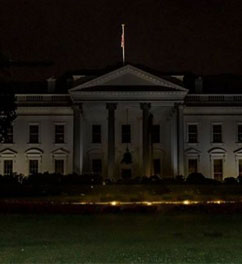Pakistan is in the grip of a serious energy crisis that is affecting all sectors of the economy and the various segments of the society. As the situation stands to-day, there are hardly any immediate solutions to resolve the issue. A change of attitude and a change of life style is needed at the national level which should be triggered by the ruling elite and followed by all segments of the society that have access to electricity. At best there could be some short and long-term solutions to the crisis but they need immediate planning and execution with an enormous investment.
Two key elements of a possible solution are: change of attitude and change in lifestyles.
The current energy consumption trends in Pakistan are extremely inefficient, whether it be in the domestic, industrial, trade or commercial sectors. With minimal effort, well over ten per cent of national electricity can be saved by applying only the first level of energy conservation that is a change in attitude. It is simple, instant and effective and all it requires is a stop to using energy unnecessarily.
Leaving lights and home appliances on even when they are not being used is a common practice in our society. Similarly, many businesses such as shops dealing in cloth and garments, jewellery, cosmetics, home appliances and electronics are usually extravagantly lit. It is commonly observed that shops that could do with two or three 40-watt tube lights to meet the desired level of luminance use as many as 15 to 20 tubes. Not only does this increase power consumption, it also generates heat and makes the environment uncomfortable.
A further economy of 10-15 per cent can be achieved by introducing the second level of energy-conservation practices, especially in industry. Collectively, just through public education. With the help of effective electronic and print media campaigns the government can quickly educate the masses.
The second part of the solution is a change in lifestyles. The nation has to draw a clear line between necessities (lighting, fans, TVs, computers, etc) and luxuries (air conditioners, microwaves, etc). There is not enough electricity to meet both requirements.
We should utilize daylight as possible, and our government has already taken steps about it. An early start and early end is recommended rather than having opening hours from afternoon until late at night. Air-conditioning, usually a sign of a luxurious lifestyle, needs to be ped. Bearing in mind that a typical domestic AC consumes far more electricity in one hour than a fan does over 24 hours, air conditioning should not be allowed except for sensitive applications such as hospitals and research centers.
The ruling class should lead by example in matters of power conservation. If it does so the common man will follow suit. It is time for the elite to take energy-saving initiatives like abandoning the use of central air conditioning, travelling by special flights and irrelevant use of official transport.
If implemented they can not only avoid the collapse of a bankrupt energy infrastructure but also ensure progress. The bottom line is, in order to safely get through the current energy crisis the nation has to differentiate between its necessities and its luxuries.
Pakistan is rich in hydro resources of energy. According to an estimate the country has enough resources to generate approximately 40000 mw of hydro-electricity. However, presently it only generates 8000 mw of electricity against an installed capacity of 11327 mw. In addition the country can generate electricity with the help of wind and solar energy which has not yet been exploited to meet the energy deficit. Nuclear energy is yet another source of energy and at present PAEC produces 472 mw. It is far less than what PAEC should have been producing to meet the energy deficit.
Thermal power is mostly produced by burning either natural gas or imported oil. The country is yet to switch over to coal from the indigenous source of energy that is estimated to be the third largest in the world with a reserve of 33.0 trillion tons.
If load shedding is still unavoidable despite all these measures, WAPDA/KESC should organize the cuts in a sensible way to cause minimum discomfort. Load shedding schedules should be properly planned and announced.
The reasons behind energy crisis are poor management, lopsided priorities and lack of accountability on part of those who stay at the helm of affairs. We must try our best to adopt energy conservation as individual and at national level.
RaoRafique








.gif)


































